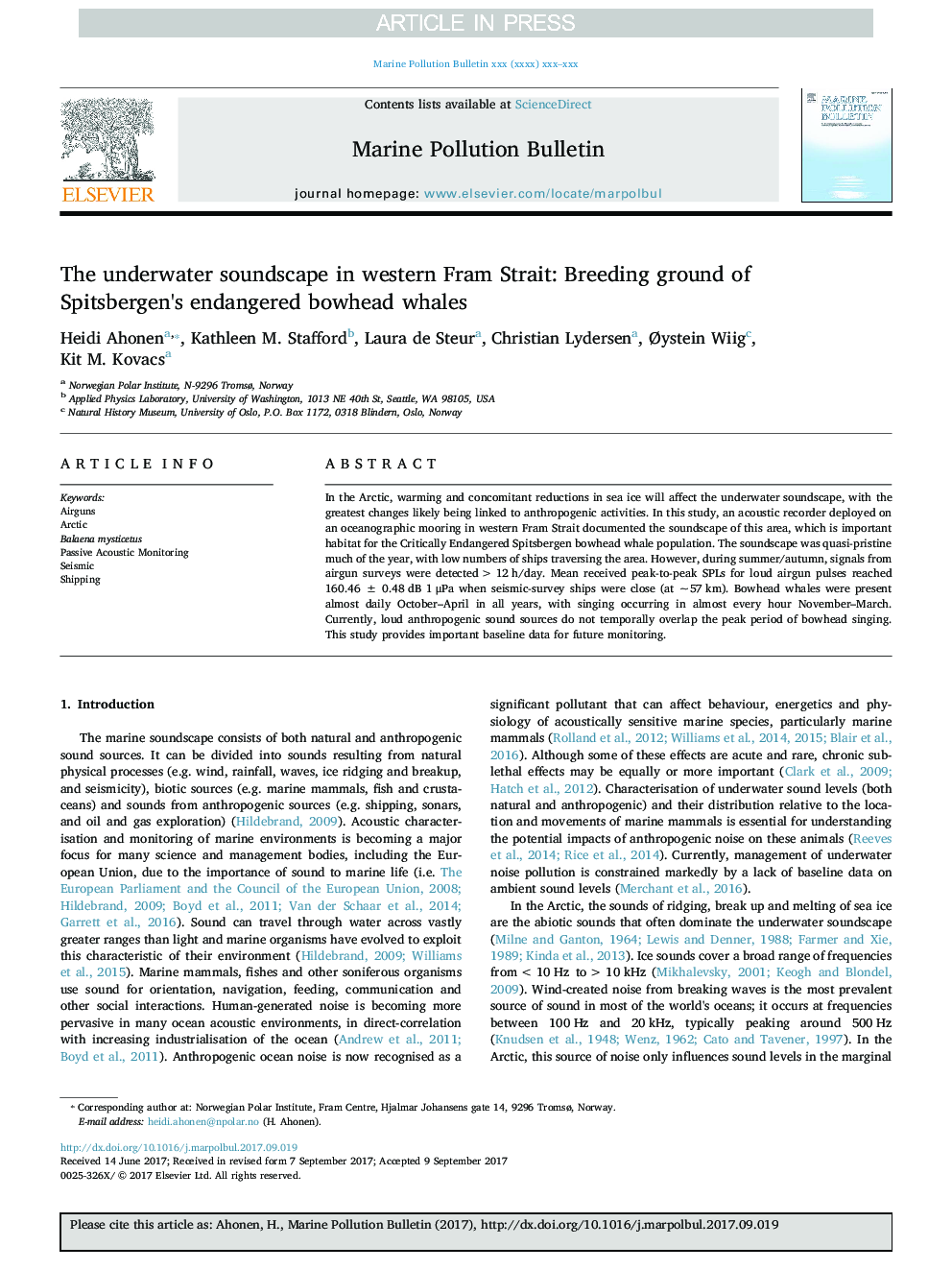| Article ID | Journal | Published Year | Pages | File Type |
|---|---|---|---|---|
| 8872229 | Marine Pollution Bulletin | 2017 | 16 Pages |
Abstract
In the Arctic, warming and concomitant reductions in sea ice will affect the underwater soundscape, with the greatest changes likely being linked to anthropogenic activities. In this study, an acoustic recorder deployed on an oceanographic mooring in western Fram Strait documented the soundscape of this area, which is important habitat for the Critically Endangered Spitsbergen bowhead whale population. The soundscape was quasi-pristine much of the year, with low numbers of ships traversing the area. However, during summer/autumn, signals from airgun surveys were detected > 12 h/day. Mean received peak-to-peak SPLs for loud airgun pulses reached 160.46 ± 0.48 dB 1 μPa when seismic-survey ships were close (at ~ 57 km). Bowhead whales were present almost daily October-April in all years, with singing occurring in almost every hour November-March. Currently, loud anthropogenic sound sources do not temporally overlap the peak period of bowhead singing. This study provides important baseline data for future monitoring.
Related Topics
Physical Sciences and Engineering
Earth and Planetary Sciences
Oceanography
Authors
Heidi Ahonen, Kathleen M. Stafford, Laura de Steur, Christian Lydersen, Ãystein Wiig, Kit M. Kovacs,
